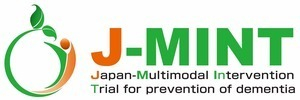J-MAP's Mission
J-MAP was founded to swiftly and reliably deliver the outcomes of the J-MINT Study—focused on preventing dementia and frailty—to as many people as possible.
By providing effective multi-domain intervention programs, we aim to support the health and well-being of older adults, their families, and everyone involved.
J-MAP's Perspective
Dementia is a global challenge.
Addressing mild cognitive impairment (MCI) early on can potentially reduce the risk of developing dementia.
More than 80 countries have adopted multi-domain interventions—encompassing diet, exercise, social activities, and more—with reported positive outcomes.
However, healthcare systems and cultural contexts differ by region, resulting in varied implementation and adoption rates.
The J-MINT Study participates in international collaborations (World-wide FINGERS Network) to share the latest knowledge on dementia prevention.
Building on this expertise and practical know-how, J-MAP implements these findings both in Japan and abroad, partnering with businesses and local governments to lead the way in dementia prevention.
Working Toward Greater Well-Being
Japan's universal health insurance system allows many individuals to access medical and long-term care services relatively easily.
Still, rapid population aging has increased caregiving demands and forced some family members to leave their jobs to provide care.
Preventing dementia and lowering its onset risk can ease the burden not only on individuals and their families but also on society's economy at large.
Local governments run a variety of public health programs to maintain residents' well-being.
Because dementia status significantly influences long-term care insurance certification, aligning dementia prevention with care-prevention strategies is especially important.
In partnership with these public health initiatives, J-MAP works to roll out multi-domain dementia-prevention programs to additional communities.





